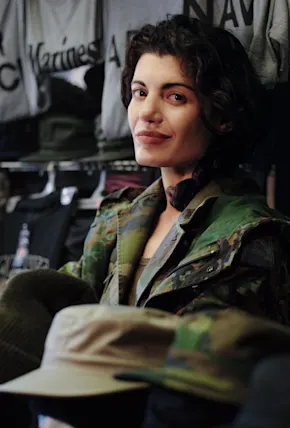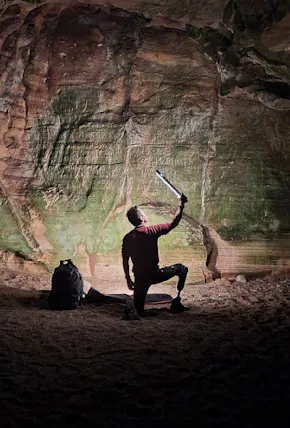You had an 18-year career in education before pursuing running full time. What was it like to switch paths later in life?
I will say, I wish it were the norm. I wish people could pivot and do the things they are passionate about because I am still passionate about education. I will always be an educator. In fact, I’m probably more of an educator now than I ever was. It's just a different platform now.
As a boarding school faculty member, my time was spoken for—I was a full-time teacher, a director of equity and inclusion, the choir director, and the cross country coach. And on the weekends, I was juggling all of that while doing all of the appearances and races, trying to be a good mom—and, you know, honestly, I didn't do a great job. Now I have this opportunity to be with my kid all the time.
How does your background as an educator tie into being an athlete now?
I'm a different kind of athlete than most people are used to. Part of what I do by default on my social media is show that I'm a living example of the different types of bodies and people that are athletes. I’m high-performing in terms of all the things that I can do while not winning awards nor being super fast.
What do you love about running?
Everything, even the parts that hurt. I love that I'm able to explore on the road or, preferably, on a trail. It's just addictive when you're in a zone—when you get to that state of flow.
What was the most challenging race you've ever done, and what did you take away from it?
The TransRockies Run that happens in Colorado. It's grueling—120 miles over six days. You're at an altitude starting at about 8,000 ft. above sea level, and you go up to 12,500 ft. Over the six days, you're typically over 9,000 feet the entire time. The first time I did it was in 2017. I came from Georgia, and although we have mountains where I train and climb, I was not at that kind of altitude, and I suffered greatly.
I learned that sometimes you're not successful at something, but what that does is it gives you an opportunity to get better and work on whatever you need to work on. And that's what I did; I used my coach for my second go at it. He gave me very specific training, and then because of that, and because of my different approach, I was able to finish the third time around.
Do you have any advice for people considering becoming a sponsored athlete later in their lives?
I don't think there is a precedent for how people like me can make money. If you look at Latoya Snell, we're both Black women, who are fat, who are trail runners or road runners. We're cyclists. We have, somehow, attracted many sponsors and many other sorts of collaborative partnerships because we're Black. Black is hot right now. I don’t say that in jest but because it's true. After the murders of Ahmaud Arbery, Brianna Taylor, and George Floyd, there have been so many companies after us specifically. The Black athlete. The fat athlete. Black women athletes. So, we're in a unique position.
I've been sponsored since 2015. When my Runner's World article and (2015) NBC nightly news spot came out, it was a pretty short learning curve. You know, I never expected to be a sponsored athlete or to be able to make a living off of [running]. You have to have a presence, and you have to be offering something new to people. Being a fat trail runner was mind-blowing to a lot of people; it is still mind-blowing to people that all types of people, all types of bodies, exercise and are out doing fitness. We've always been forgotten intentionally. It might be in two weeks that Black is not going to be in anymore because what society has deemed as normative is back in. So, I'm trying to maintain a very significant presence, because I think it's important. My story is just one of many. It's important to show people that there is a wide array of people and bodies that inhabit outdoor spaces: running spaces, hiking spaces -- to show they belong out there too.
If you have something different to offer, then go for it. The easiest thing to do is to tag companies on your social media.








